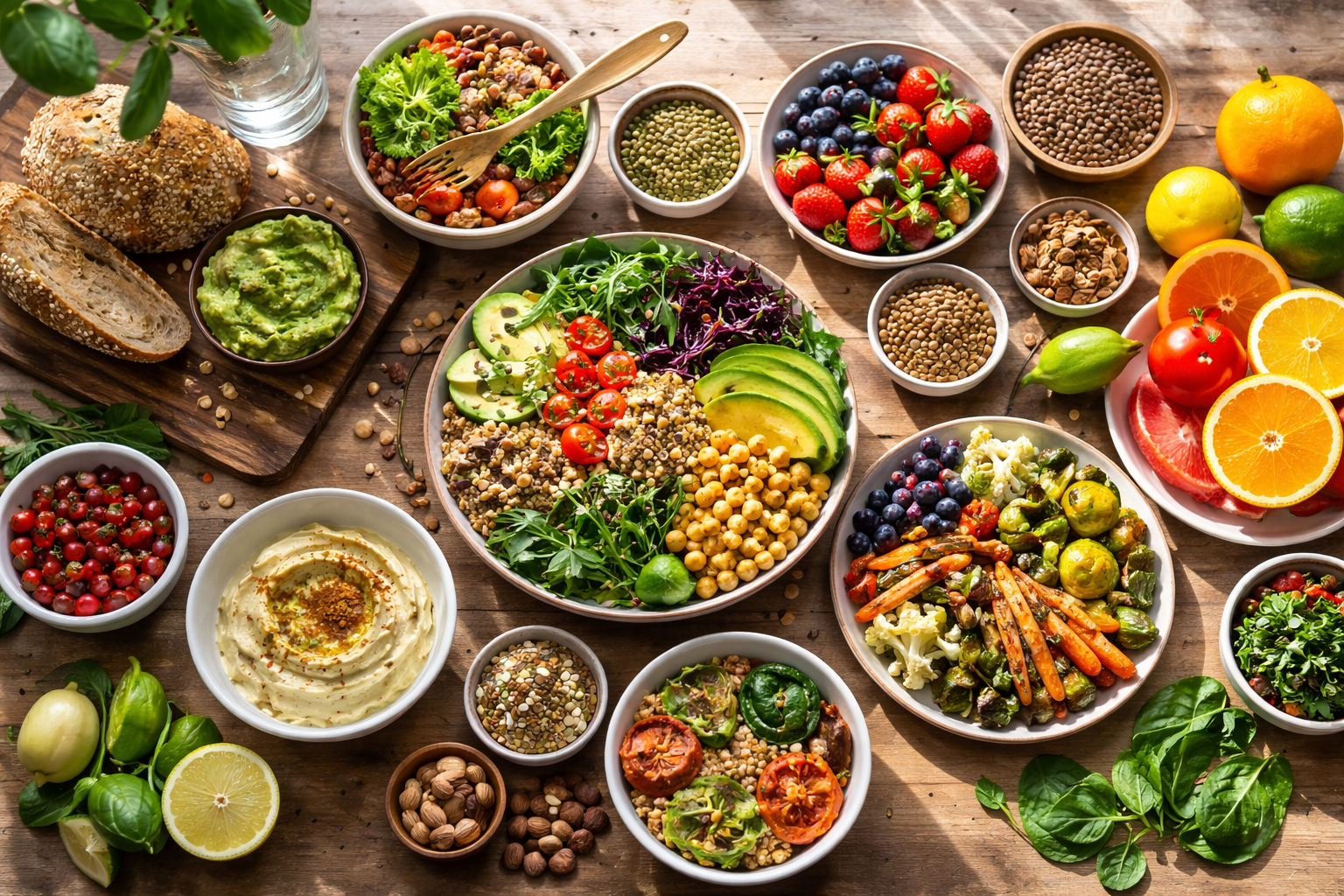
When Abundance Fails to Nourish
In When Abundance Fails to Nourish, Chef Matthew Thompson examines the paradox of modern food systems: unprecedented calorie abundance paired with declining nutritional health. Rising obesity and chronic disease are not failures of willpower, but outcomes of a system optimized for cheap, hyper-palatable calories over nutrient density. Thompson challenges “eat less, move more” narratives and calls for a nutrient-first approach centered on whole foods, plant-forward meals, and intentional food cultures that truly nourish rather than simply fill.
Themes from The Lorax
The Lorax is a powerful metaphor to illustrate how today’s chefs must act as stewards of both flavor and the planet, highlighting that the global food system alone accounts for 31 % of human-caused greenhouse gas emissions and that over 33 % of the world’s soils are degraded. As culinary professionals we are challenged to redefine success beyond profit, measuring it by nourishment, ecosystem health and accountability, and to “plant the next Truffula” through intentional sourcing, resilient menu design, and transparent systems thinking.
Candy for Breakfast? The Surprising Truth About Breakfast Bars
Many popular breakfast bars marketed as “healthy” contain sugar, additives, and processed ingredients comparable to candy bars, making them little more than dessert in disguise. By reading labels, choosing whole-food alternatives, and rethinking convenience, consumers can make smarter choices that truly fuel their day.
When You Invite a Chef for Dinner…
During a family apple-picking trip, the author observes that many perfectly fine apples lie discarded on the ground, overshadowed by the myth of supermarket-worthy perfection. This experience becomes a metaphor: leaders in food and hospitality should see potential in what others dismiss, reuse what’s undervalued, and redefine our relationship with food and waste.
Ugly Apples, Beautiful Purpose: Leadership Lessons from an Orchard
During a family apple-picking outing, the author confronts how supermarket expectations of perfection lead to massive food waste and a distorted view of what “good” produce is. By noticing the flawed but edible apples left on the ground, the post draws leadership lessons for culinary innovators: value imperfection, transform waste into opportunity, and reframe how we see food.
Nutrition Is More Than the Sum of Its Parts
Nutrition isn’t a math equation of single nutrients—it’s a symphony where whole foods, diversity, and context create harmony far greater than any isolated part. By moving beyond reductionist “nutritionism” and embracing synergy, bioavailability, and variety, we can nourish ourselves more fully and lead others toward a richer, purpose-driven understanding of food.
The Psychology of Menu Writing
The Psychology of Menu Writing” explores how subtle cues—word choice, structure, and design—shape what diners perceive and order. It argues that by thoughtfully applying behavioral principles (e.g. anchoring, decoys, sensory language), chefs and operators can turn menus from tools of persuasion into instruments of guest satisfaction and healthier choices.
Sleep: The Core Pillar of Health We Often Neglect
Sleep: The Core Pillar of Health We Often Neglect” argues that adequate, high-quality sleep is foundational to physical, mental, and metabolic health—but routinely undervalued in wellness conversations. It emphasizes evidence linking sleep with immune function, cognition, and disease prevention, urging individuals and institutions alike to treat rest as non-negotiable rather than optional.
The Hidden Costs of Food
The Hidden Costs of Food” reveals how our market prices mask the environmental, social, and health burdens built into modern agriculture—from soil degradation and labor exploitation to diet-driven diseases and antibiotic resistance. It argues that by choosing regenerative practices, fair trade, and whole foods, consumers and leaders can help internalize those hidden costs, making our food system healthier, more just, and more sustainable.
Understanding H5N1 Avian Influenza
This article dives into the history, risks, and implications of H5N1 avian influenza—highlighting how outbreaks in poultry create cascading supply chain and price volatility for restaurants and chefs. It urges food professionals to build resilience by diversifying protein sources, reinforcing food safety protocols, and adapting menus to reduce dependency on poultry and egg products.
Food Waste
There is a distinction between “food waste” (losses in agricultural production, supply chain inefficiencies) and “wasted food” (edible food discarded at consumer or foodservice levels), arguing that tailored solutions must address each layer of loss. Through examples like buffet overproduction, better portion control, staff training, and food recovery laws, the post offers actionable strategies for operators to reduce waste, improve efficiency, and strengthen sustainability.
Sustainable Nutrition: A Vision for 2025
This article lays out a forward-looking framework where nutrition is redefined to combine health, equity, and ecological resilience—calling for diets that are not only nourishing but sustainable at scale. It proposes that by 2025, leaders in food systems must integrate regenerative sourcing, plant-forward innovation, and transparency to make every plate part of the solution.












